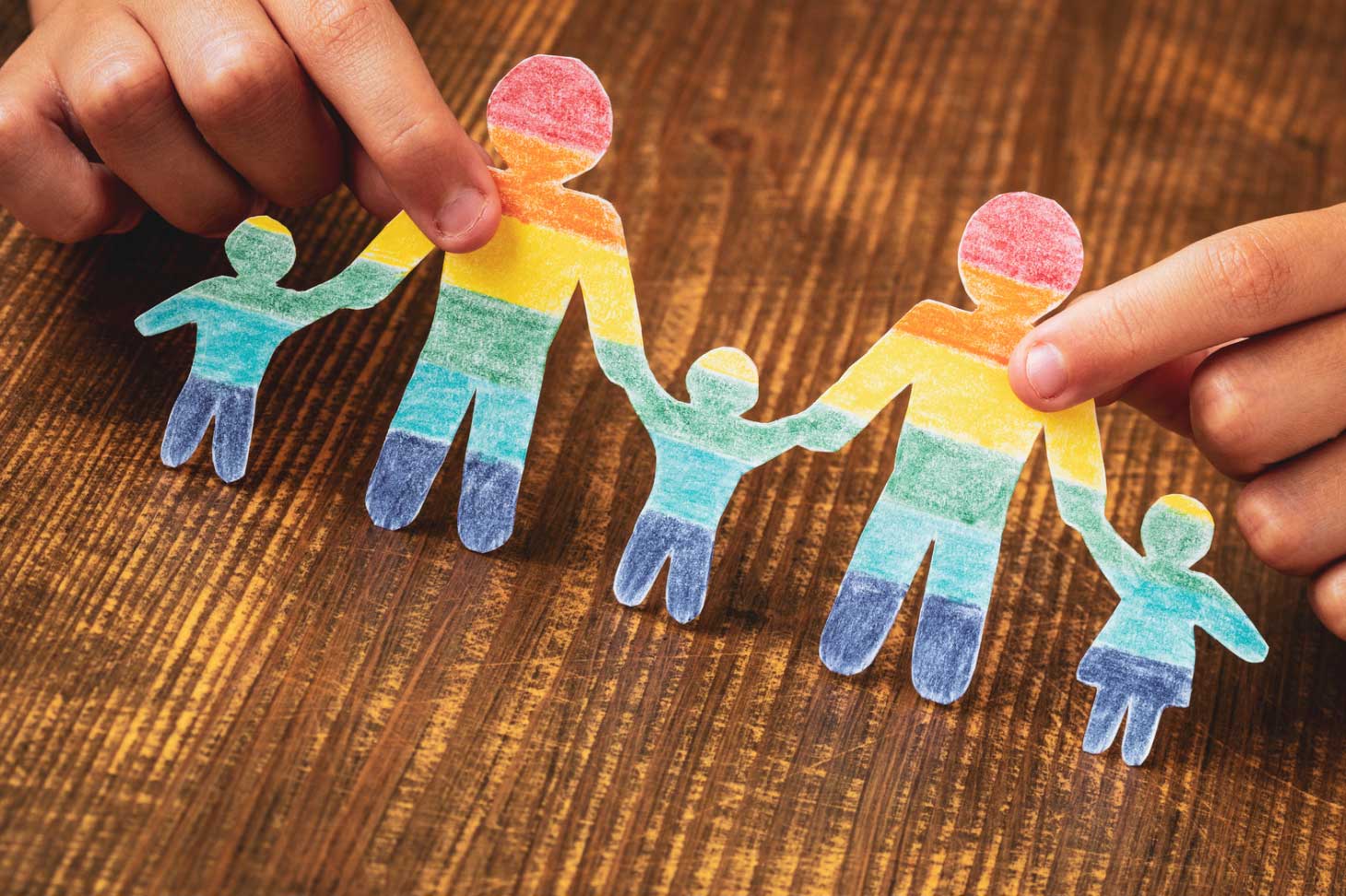
Family, as the basic unit of society, is not immune to the dynamics that arise from the diversity of individuals with different backgrounds, values, and viewpoints. One of the greatest challenges in family life is how to address conflicts that arise from differing perspectives. In this context, it is essential not to see conflict merely as a problem but as an opportunity to learn, grow, and strengthen relationships.
Different Perspectives in Family

Every family member brings their own experiences and worldview, which shapes the way they understand the world. These differences not only emerge in terms of ideology but also in the way problems are solved, challenges are responded to, and communication is conducted. When disagreements or disputes arise, they often create tension in relationships.
However, conflict is not something to be avoided. On the contrary, how we manage differing perspectives will determine the strength of family relationships. When handled wisely, conflict can become a source of growth and deeper understanding among family members.
Understanding the Sources of Conflict in Family

To address conflict, it is essential first to understand where it comes from. Differing perspectives often arise from various factors, such as:
- Background and Life Experiences
Each individual carries cultural, educational, and personal experiences that influence the way they think and act. When two people from different backgrounds meet, these differing viewpoints can create tension. - Communication Styles
Not everyone feels comfortable with the same communication methods. Some people prefer to speak openly and directly, while others may prefer to avoid confrontation or speak more cautiously. - Differences in Values and Beliefs
Conflict often arises when there are differences in values or beliefs among family members. This can relate to religion, politics, or even views on roles within the family. - Differences in Goals or Priorities
Sometimes, family members have different life goals. For example, some may focus on career development, while others may prioritize family life. These differences in priorities can lead to disagreements or conflicts.
Addressing Conflict with the Right Approach

When facing differing perspectives, it is important to adopt a constructive approach in resolving conflicts. Here are several ways to help manage these differences wisely:
- Listening with Empathy
One of the most effective ways to resolve conflict is by listening empathetically. This means striving to understand the feelings and perspectives of others without immediately judging or offering solutions. Listening attentively allows us to see the situation from a different viewpoint, which can ease tension and pave the way for more productive dialogue. - Accepting Differences
It is important to understand that differing perspectives are natural and may not always be resolved with consensus. Accepting that every individual has the right to view the world in their own way is the first step toward creating harmony. Differences do not mean something is wrong; rather, they provide an opportunity for mutual learning. - Clear and Open Communication
Conflict often arises from misunderstandings or poor communication. To resolve conflicts, it is essential to communicate clearly and openly. Avoid using words that might hurt others’ feelings, and try to express your thoughts and feelings in a way that respects differences. Don’t hesitate to ask questions if something is unclear. - Managing Emotions
When engaged in an emotional debate or discussion, it is easy to get caught up in anger or frustration. However, managing emotions is key to resolving conflicts constructively. Try to stay calm, take deep breaths, and avoid reacting impulsively. If needed, give yourself time to reflect before continuing the conversation. - Seeking Solutions that Satisfy All Parties
In addressing family conflict, it is not always possible to reach full agreement. However, it is important to find solutions that can satisfy all parties or at least reach a fair compromise. Focus on finding a middle ground that allows each family member to feel valued and understood. - Respecting Others’ Perspectives
Everyone brings their own set of values and beliefs, and it is crucial to respect others’ perspectives, even when we disagree. This creates a sense of mutual respect and opens the door for more productive dialogue. Appreciating differences allows us to grow together, not apart. - Using Conflict as an Opportunity for Growth
Every conflict is an opportunity to learn and grow, both personally and in family relationships. With the right approach, conflict can strengthen relationships and help us understand each other on a deeper level. When we manage differences wisely, we not only resolve problems but also deepen family bonds.
Maintaining Harmony in the Family

After understanding and addressing conflict, it is important to continue nurturing harmony within the family. Here are several ways to ensure strong family relationships:
- Building Openness and Trust
Trust is the foundation of every healthy relationship. By being open and honest with each other, we can prevent many conflicts that arise from misunderstandings or misconceptions. - Valuing Time Together
Engaging in activities together as a family can strengthen relationships and help family members understand one another better. This can be anything from sharing meals, going on family vacations, or simply talking about each other’s day. - Providing Support
Emotional support is essential for maintaining family harmony. When family members feel supported and valued, they are more equipped to handle conflicts or challenges. - Committing to Mutual Growth
A family that grows together will find it easier to resolve conflicts and differences. It is essential to have a shared commitment to continue learning and evolving, both as individuals and as a family.
Conflicts arising from differing perspectives within a family are a natural occurrence. However, how we approach them can determine the strength of family relationships. By listening, appreciating differences, communicating clearly, and managing emotions, we can turn conflict into an opportunity for growth and strengthen family bonds. The key to addressing differences lies in building deeper understanding, mutual respect, and a commitment to growing together. In this way, a family will not only overcome conflict but also become a source of strength and happiness for each of its members.
If you want to learn more about how to manage a harmonious family, visit our programs at campsite.bio/qqgroup and join the “New Me: Me & Family” program for the right guidance.
Mari bersama kita melangkah menuju Indonesia hebat!
